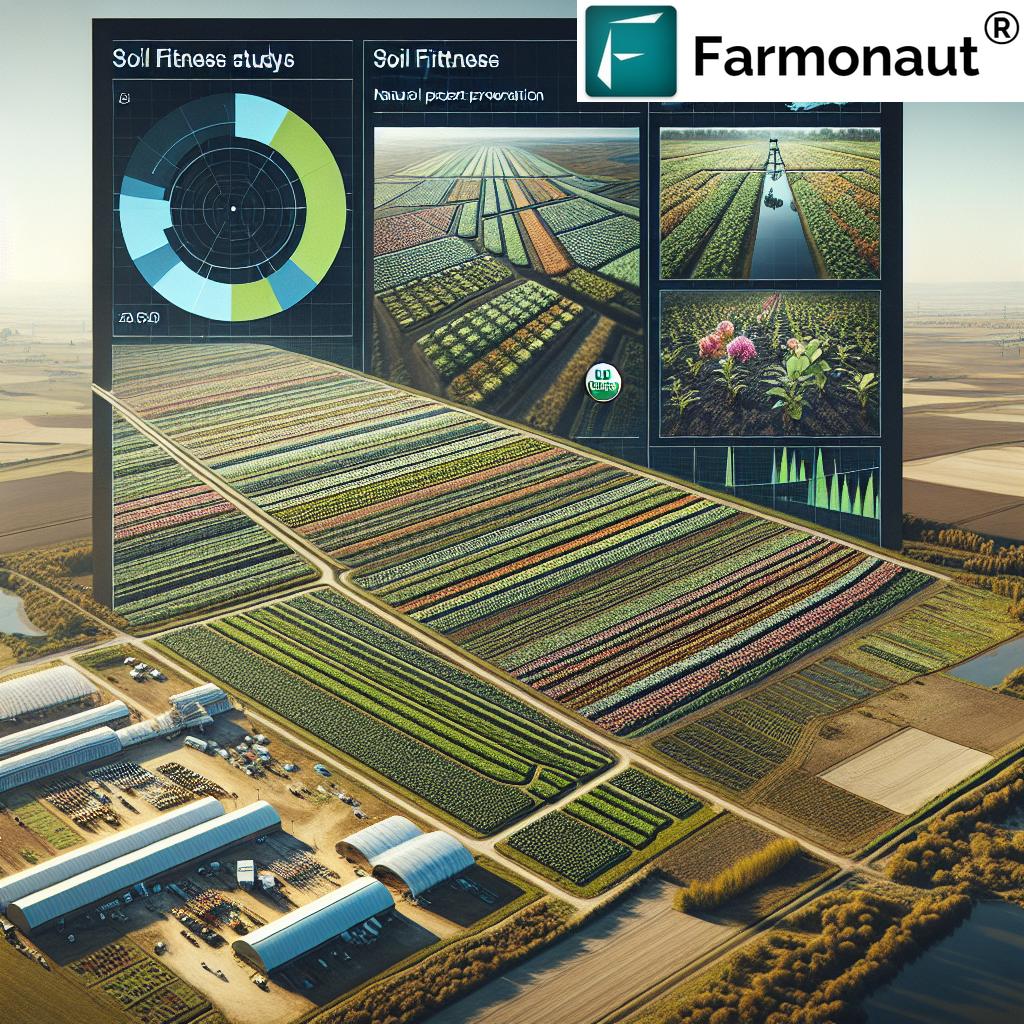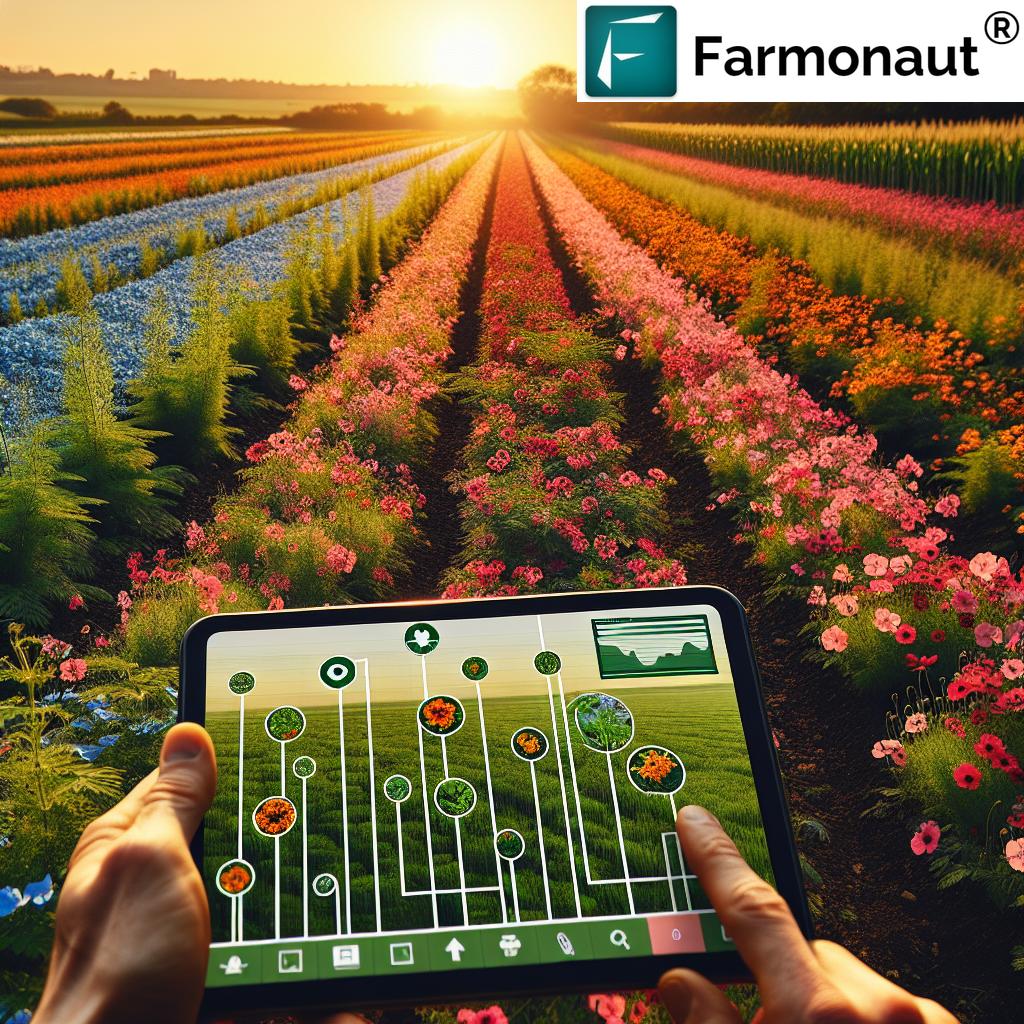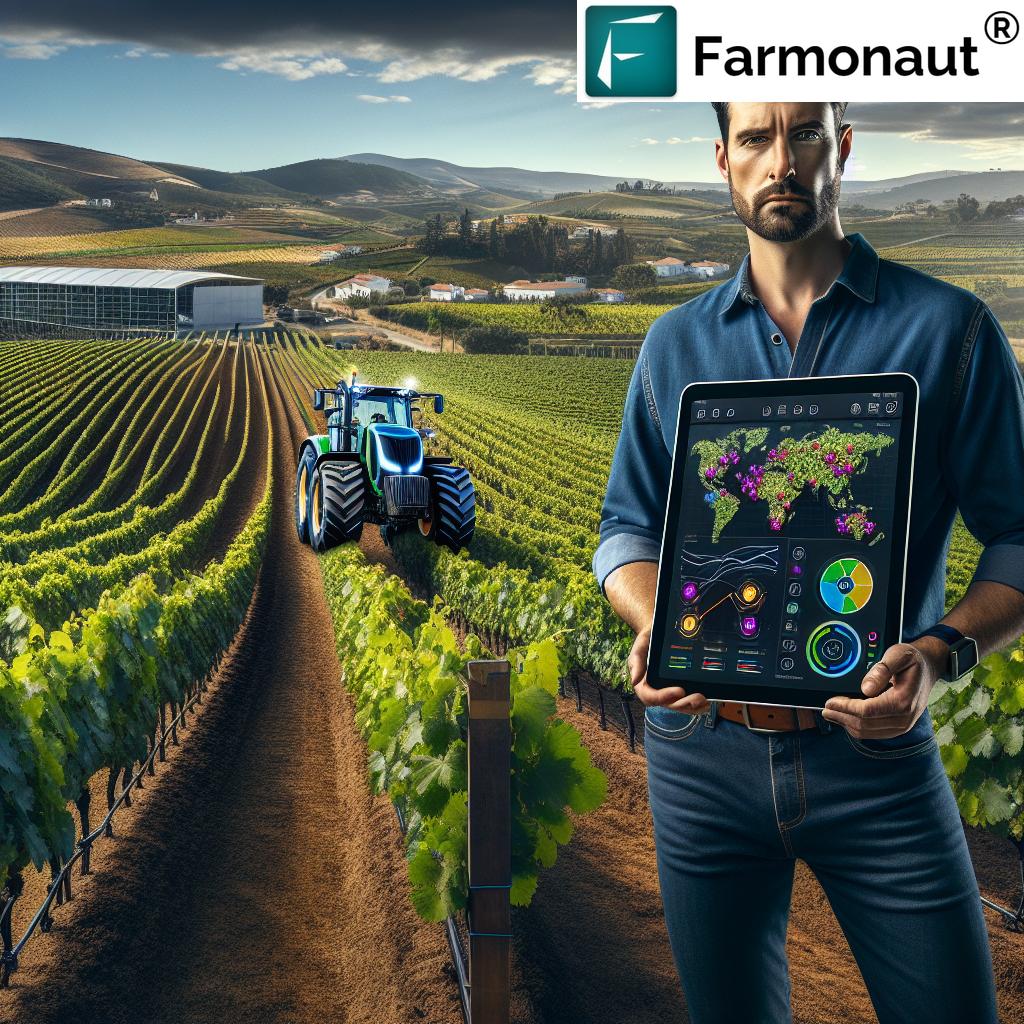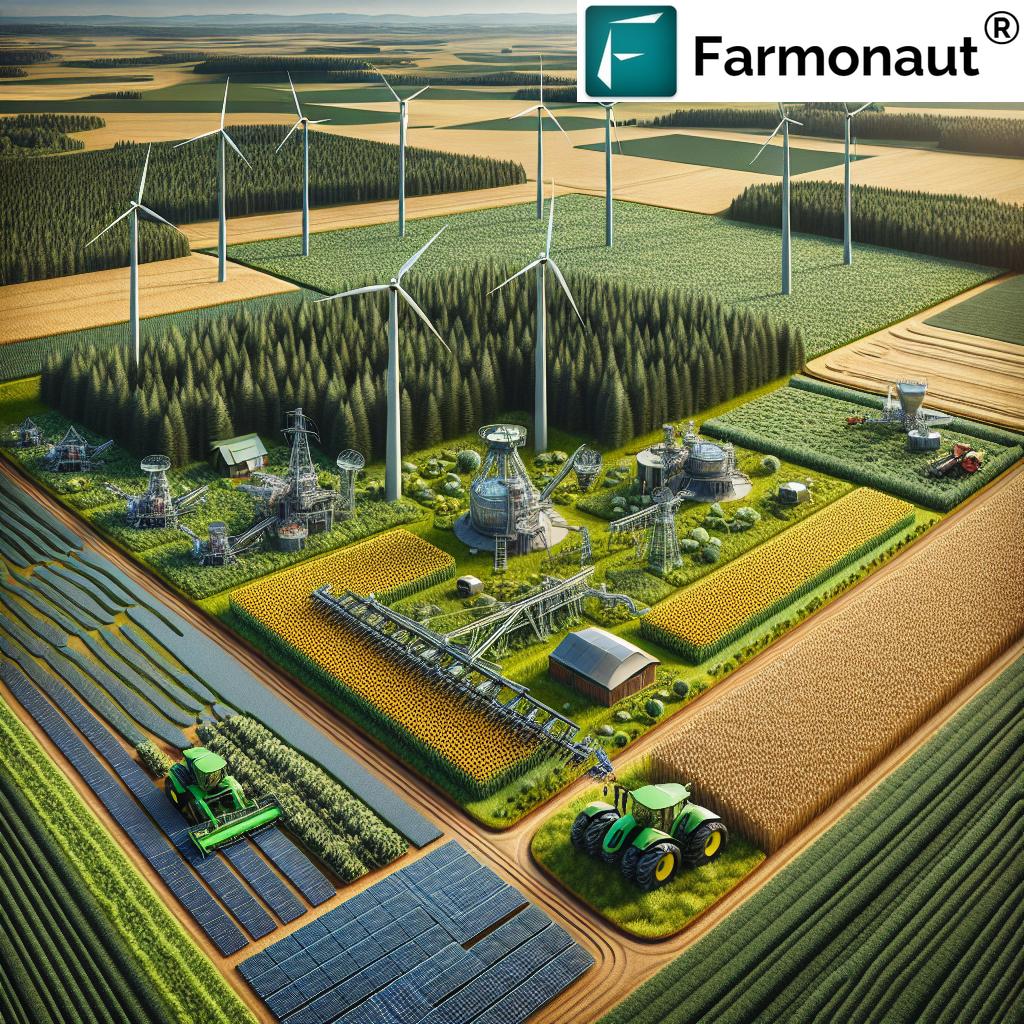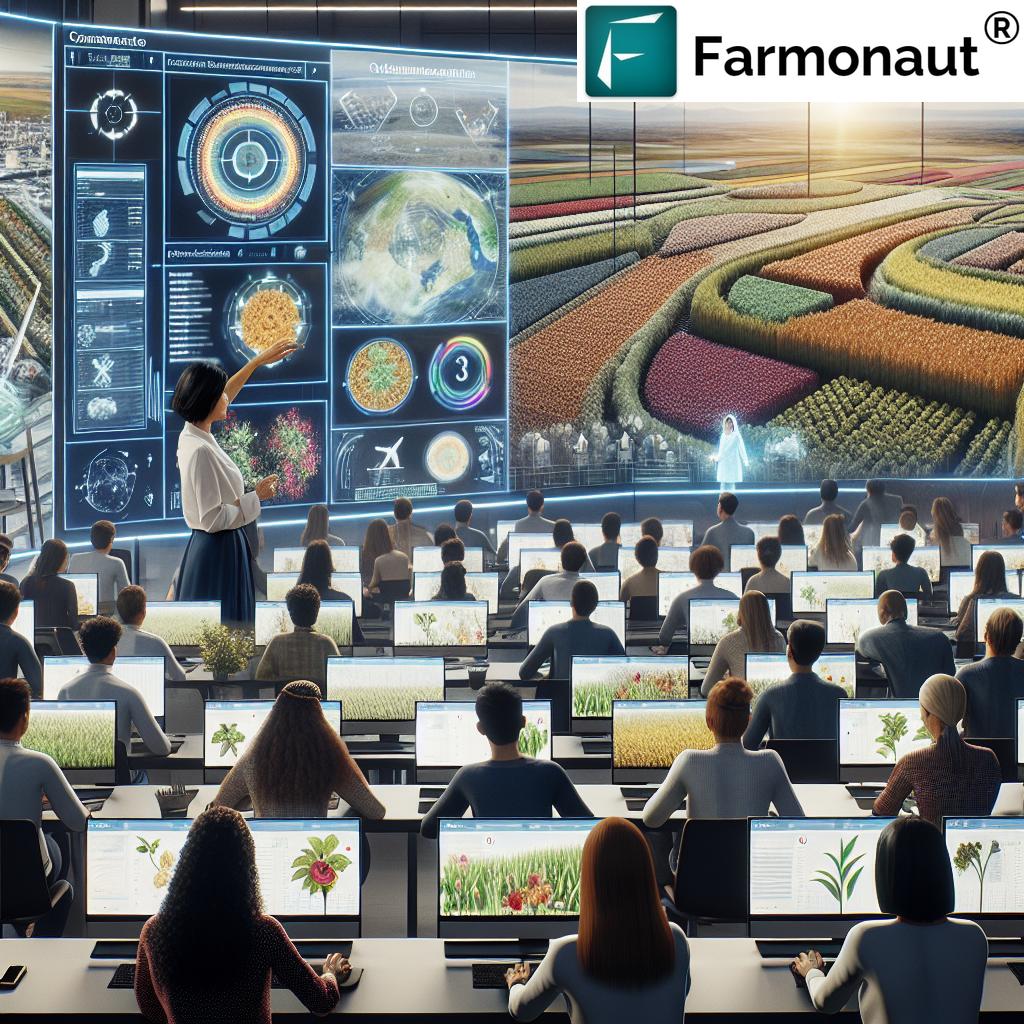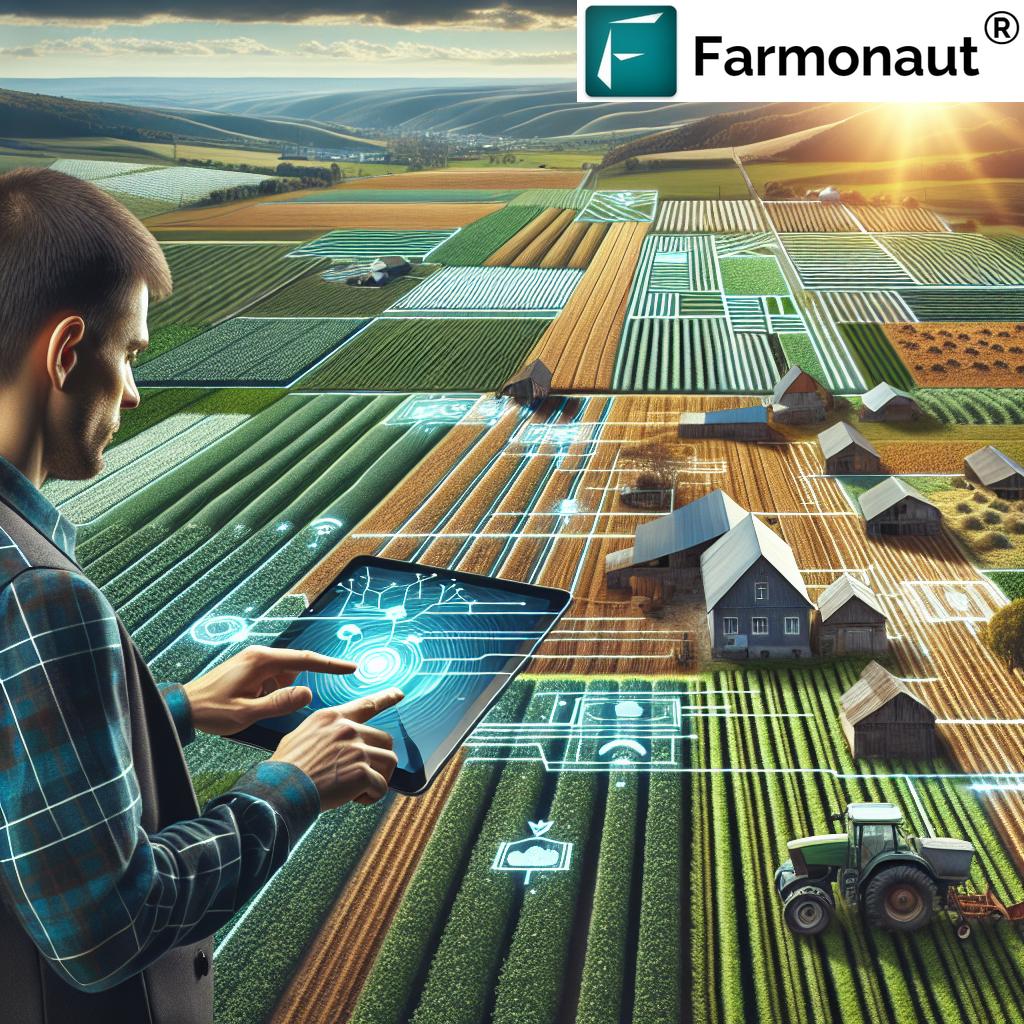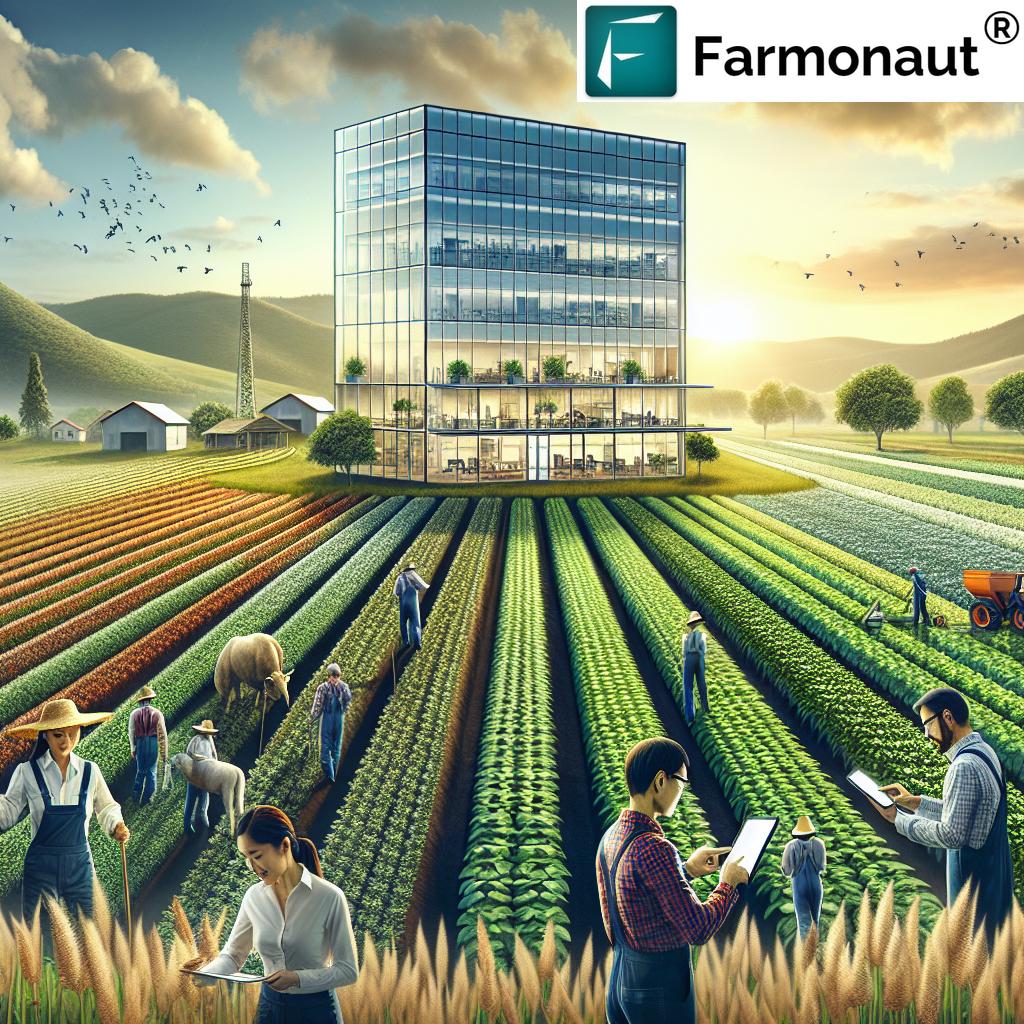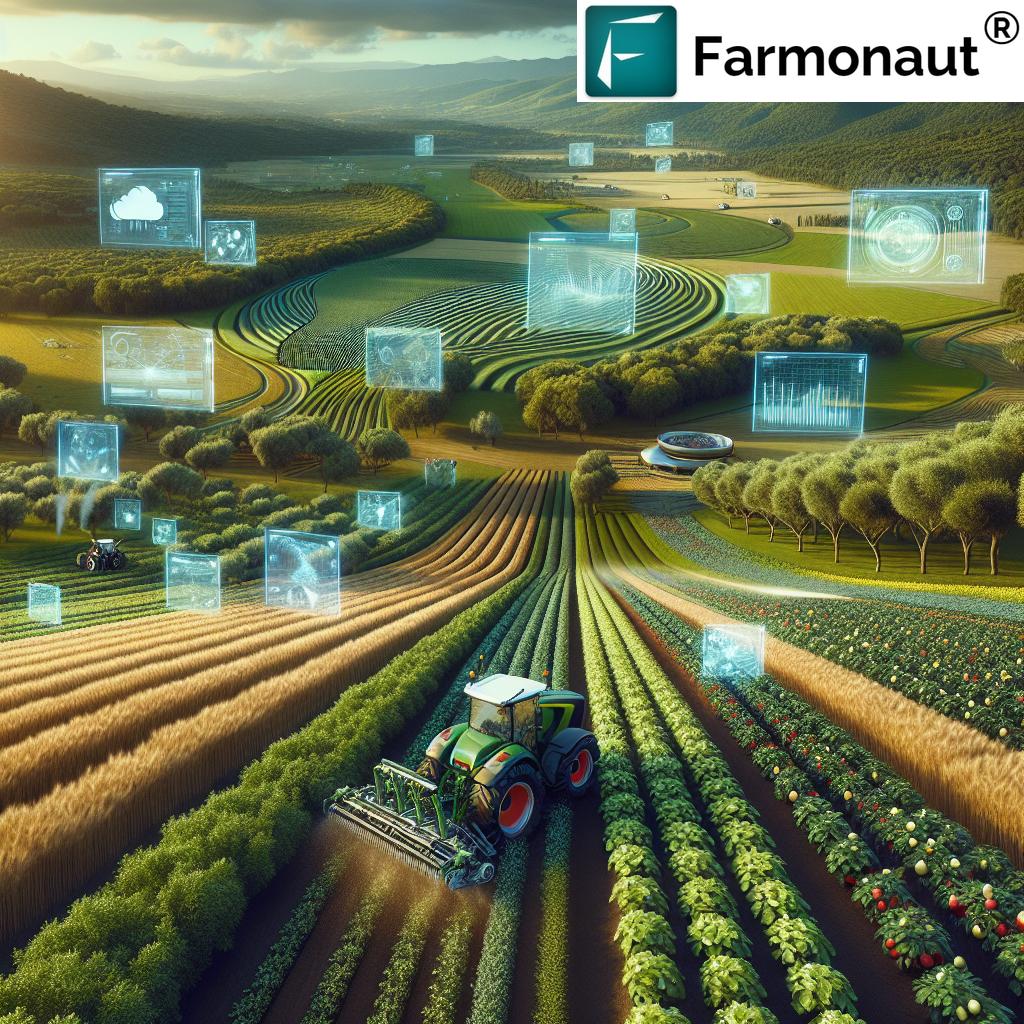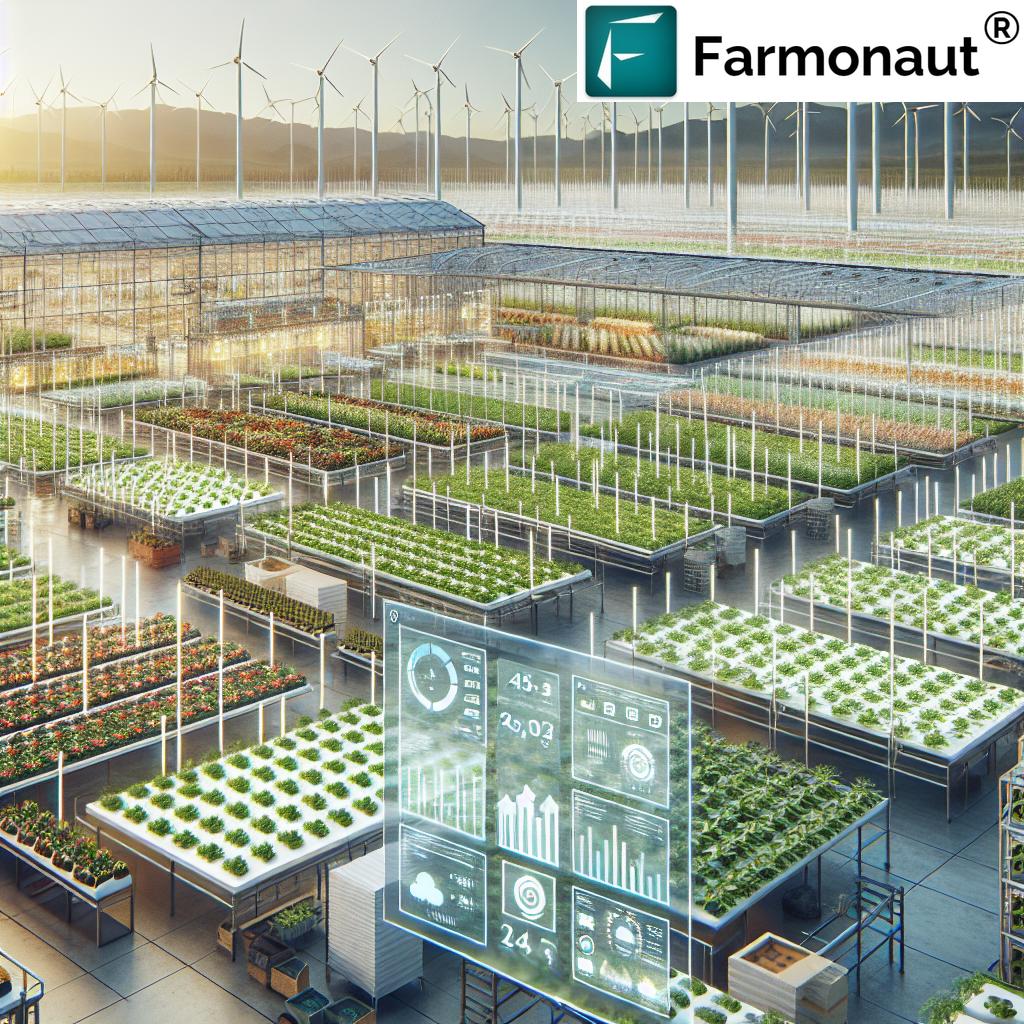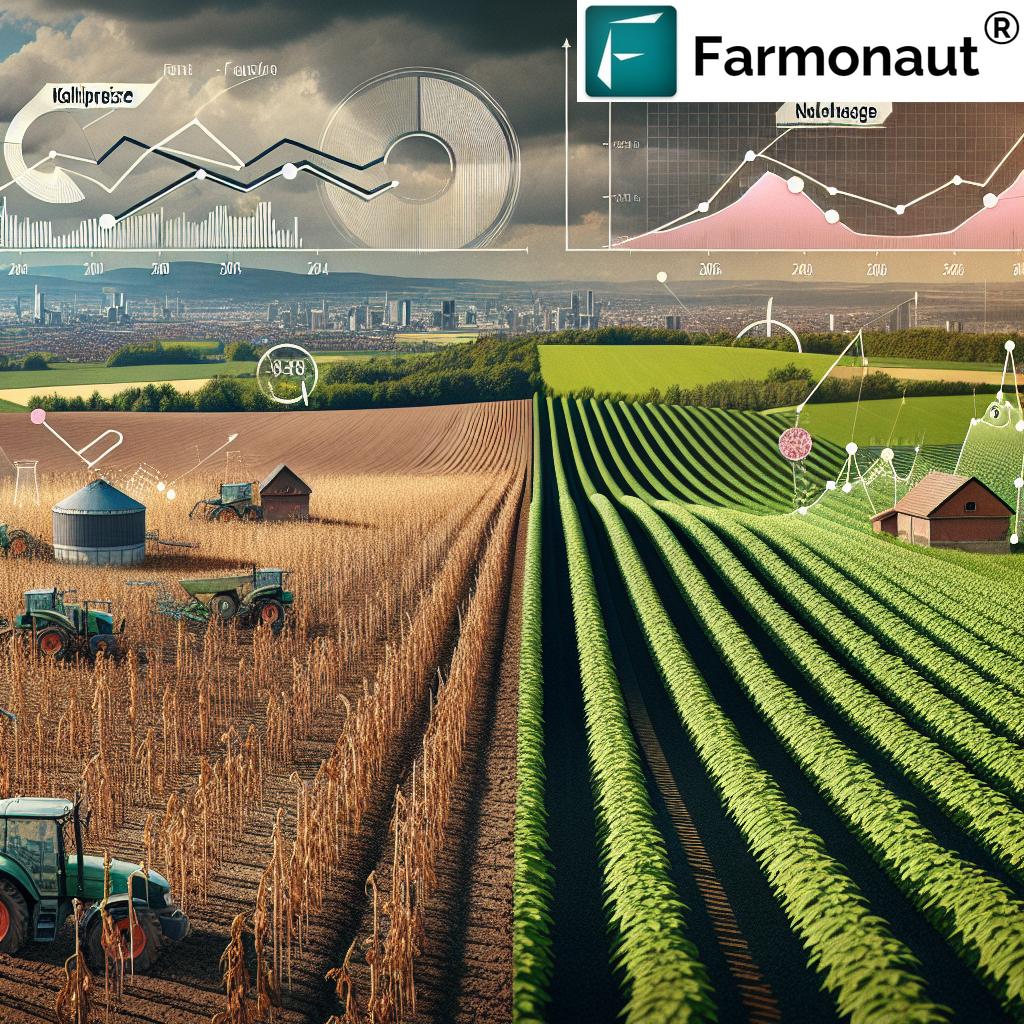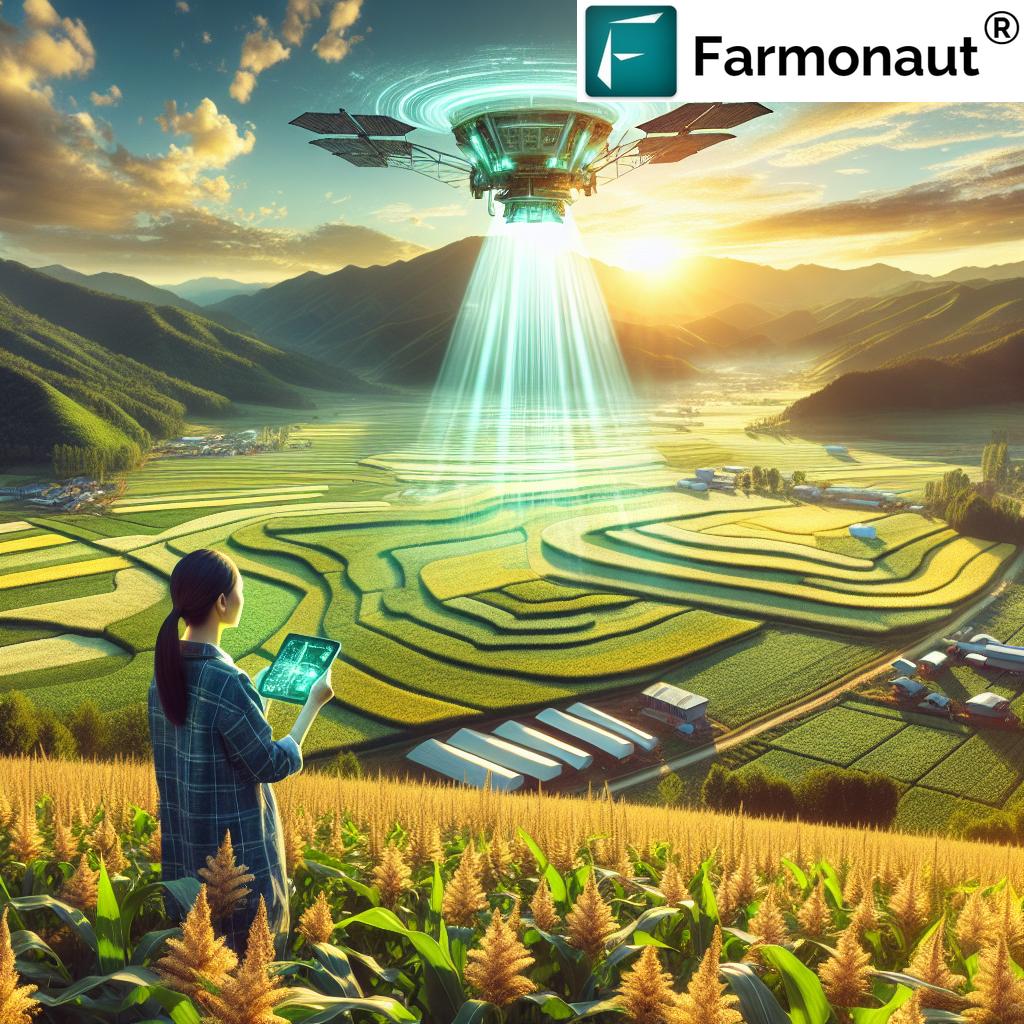Unlocking Sustainable Agriculture: How EU Organic Certification Revolutionizes Farming Practices
“The EU Organic Logo is a key element in marketing over 500,000 certified organic products across Europe.”
In the ever-evolving landscape of European agriculture, we are witnessing a remarkable transformation driven by organic farming practices and sustainable agriculture. At the heart of this revolution lies the EU Organic Logo, a symbol that has become synonymous with quality, sustainability, and trust in the realm of organic product marketing. As we delve into the world of EU organic certification, we’ll uncover how it’s reshaping farming practices, influencing agricultural innovation, and setting new standards for organic food production.
Our journey through the intricacies of organic farming regulations and their impact on crop production and rural development will reveal the multifaceted nature of this agricultural paradigm shift. From the health of our soils to innovative pest management techniques, we’ll explore the essential aspects of organic agriculture that are not only changing how we farm but also how we think about our food systems and their impact on our planet.
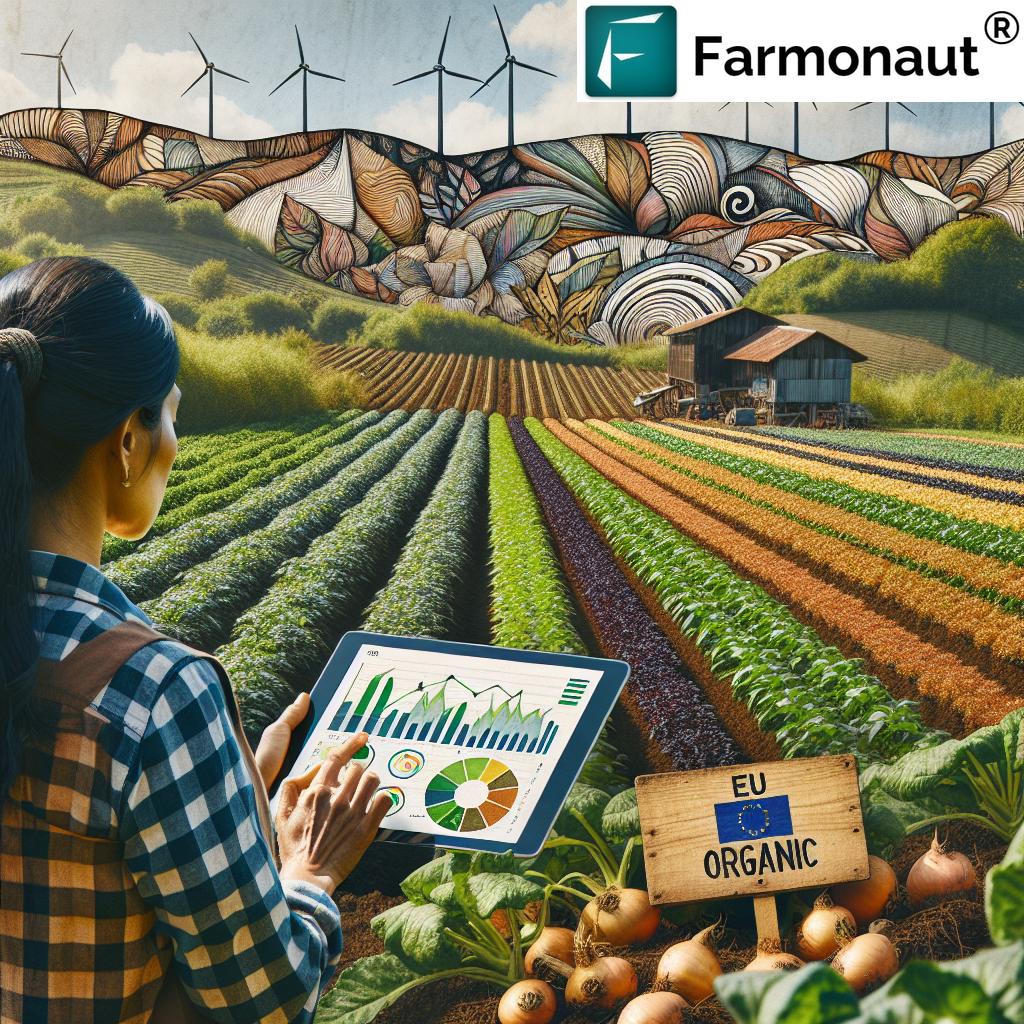
The Rise of Organic Farming in Europe
Organic farming has seen a significant surge across Europe in recent years, driven by increasing consumer demand for healthier, more sustainable food options. This growth is not just a trend but a fundamental shift in how we approach agriculture and food production. The EU’s commitment to organic farming is evident in its ambitious targets and comprehensive regulatory framework.
- Increased land under organic cultivation
- Growing market share of organic products
- Enhanced support for farmers transitioning to organic methods
As we embrace this organic revolution, it’s crucial to understand the role of technology in supporting sustainable agricultural practices. Platforms like Farmonaut are at the forefront of this integration, offering innovative solutions that make precision agriculture more accessible to farmers of all scales.
Understanding EU Organic Certification
The EU Organic Logo is more than just a label; it’s a guarantee of quality and adherence to strict organic food standards. This certification process covers every aspect of agricultural production, processing, and storage, ensuring that products bearing the logo meet the highest standards of organic integrity.
Key aspects of EU organic certification include:
- Rigorous inspection and certification processes
- Prohibition of synthetic pesticides and fertilizers
- Strict regulations on animal welfare and antibiotic use
- Emphasis on biodiversity and environmental protection
These stringent requirements not only benefit consumers but also contribute to the overall health of our ecosystems and rural communities.
The Impact of Organic Farming on Soil Health
One of the most significant benefits of organic farming practices is their positive impact on soil health. By eschewing synthetic inputs and focusing on natural soil management techniques, organic farmers are helping to rebuild and maintain soil fertility for future generations.
“Organic farming practices in the EU have led to a 20% increase in soil biodiversity compared to conventional methods.”
This improvement in soil health has far-reaching consequences:
- Enhanced water retention capabilities
- Increased carbon sequestration
- Greater resilience to climate change impacts
- Improved long-term agricultural sustainability
The focus on soil health in organic farming aligns perfectly with the broader goals of sustainable agriculture, creating a more resilient and productive agricultural system.
Innovative Pest Management in Organic Farming
Pest management is one of the most challenging aspects of organic farming. Without the use of synthetic pesticides, organic farmers must rely on innovative and natural methods to protect their crops. This has led to the development of sophisticated integrated pest management (IPM) strategies that work in harmony with nature.
Some effective organic pest management techniques include:
- Crop rotation to disrupt pest life cycles
- Biological control using beneficial insects
- Use of pheromone traps and other non-toxic pest control methods
- Cultivation of pest-resistant crop varieties
These methods not only protect crops but also contribute to overall ecosystem health by preserving beneficial insect populations and reducing environmental contamination.
The Role of Technology in Organic Farming
While organic farming emphasizes natural processes, it doesn’t shy away from technological innovation. In fact, advanced technologies are playing an increasingly important role in making organic farming more efficient and sustainable. Geographic Information Systems (GIS) in agriculture and remote sensing technologies are revolutionizing how organic farmers manage their land and crops.
Farmonaut’s satellite-based crop health monitoring system is a prime example of how technology can support organic farming practices. By providing real-time data on crop health, soil moisture levels, and other critical metrics, Farmonaut empowers organic farmers to make informed decisions about irrigation, fertilizer usage, and pest management.
Explore Farmonaut’s API for advanced agricultural data analysis
Other technological advancements supporting organic agriculture include:
- Precision irrigation systems
- AI-powered crop monitoring and prediction tools
- Blockchain technology for supply chain transparency
- Automated weeding robots designed for organic farms
These technologies not only improve efficiency but also help organic farmers maintain compliance with EU organic farming regulations while optimizing their operations.
EU Organic Farming Regulations: A Comprehensive Framework
The success of organic farming in the EU is largely due to its comprehensive regulatory framework. These regulations cover every aspect of organic production, from the field to the consumer’s table, ensuring the integrity of organic products throughout the supply chain.
Key components of EU organic farming regulations include:
- Strict rules on crop rotation and soil management
- Regulations on seed and plant propagation material
- Guidelines for organic livestock rearing and aquaculture
- Processing and labeling requirements for organic products
- Regular inspections and certification processes
These regulations not only maintain the high standards of organic production but also foster innovation and continuous improvement in organic farming practices.
| Agricultural Aspect | Conventional Farming | EU Organic Certification Requirements |
|---|---|---|
| Pesticide Use | Synthetic pesticides allowed | Only approved natural substances |
| Fertilizer Application | Synthetic fertilizers common | Organic fertilizers and composts |
| Genetic Modification | GMOs permitted | GMOs strictly prohibited |
| Animal Welfare | Variable standards | High welfare standards mandatory |
| Soil Management | Focus on short-term productivity | Emphasis on long-term soil health |
| Biodiversity Conservation | Not a primary focus | Active promotion of biodiversity |
| Processing Methods | Wide range of additives allowed | Limited use of approved additives |
| Labeling and Traceability | Basic requirements | Strict traceability and labeling rules |
The Economic Impact of Organic Farming
The shift towards organic farming is not just an environmental choice; it’s also having a significant impact on the agricultural economy. As consumer demand for organic products continues to grow, organic farmers are finding new opportunities for economic success.
Economic benefits of organic farming include:
- Premium prices for organic products
- Reduced input costs due to less reliance on synthetic chemicals
- Diversification of income streams through crop rotation and mixed farming
- Increased rural employment opportunities
Moreover, the organic sector is driving innovation in agricultural processing and storage, creating new job opportunities and stimulating rural development.
Challenges and Solutions in Organic Farming
While organic farming offers numerous benefits, it also comes with its own set of challenges. Addressing these challenges is crucial for the continued growth and success of the organic sector.
Common challenges in organic farming include:
- Lower yields compared to conventional farming
- Higher labor costs
- Difficulty in managing certain pests and diseases
- Complexities in certification and compliance
Innovative solutions to these challenges are emerging, many of which leverage technology to support organic farmers. For instance, Farmonaut’s AI-powered advisory system, Jeevn AI, provides personalized recommendations to help organic farmers optimize their crop management strategies.
Explore Farmonaut’s API Developer Docs for integrating agricultural data solutions
The Future of Organic Farming in Europe
As we look to the future, the trajectory of organic farming in Europe appears bright. With continued support from EU policies, growing consumer awareness, and ongoing technological advancements, we can expect to see further expansion and innovation in the organic sector.
Key trends shaping the future of organic farming include:
- Increased integration of precision agriculture technologies
- Growing focus on regenerative agricultural practices
- Expansion of organic farming into new crop types and regions
- Development of more resilient and productive organic farming systems
As these trends unfold, tools like Farmonaut will play an increasingly important role in helping organic farmers navigate the complexities of sustainable agriculture while maximizing their productivity and profitability.
Conclusion: Embracing a Sustainable Agricultural Future
The EU Organic Certification system has indeed revolutionized farming practices across Europe, setting a global standard for sustainable agriculture. By prioritizing soil health, biodiversity, and environmental protection, organic farming is not just producing healthier food but also contributing to the long-term sustainability of our agricultural systems.
As we continue to face global challenges such as climate change and food security, the principles and practices of organic farming offer valuable solutions. With the support of innovative technologies and continued research, organic agriculture is poised to play an increasingly important role in feeding the world sustainably.
Whether you’re a farmer considering the transition to organic methods, a consumer interested in making more sustainable food choices, or an agribusiness looking to innovate, the world of organic farming offers exciting opportunities. By embracing these sustainable practices and leveraging cutting-edge technologies like those offered by Farmonaut, we can work together towards a more resilient, productive, and environmentally friendly agricultural future.
FAQs About EU Organic Certification and Sustainable Agriculture
- What is the EU Organic Logo?
The EU Organic Logo is a certification mark that guarantees a product has been produced in accordance with EU organic farming regulations. It assures consumers that at least 95% of the product’s agricultural ingredients are organic. - How does organic farming benefit the environment?
Organic farming promotes biodiversity, improves soil health, reduces pollution from pesticides and synthetic fertilizers, and often has a lower carbon footprint compared to conventional farming methods. - Can technology be used in organic farming?
Yes, technology plays a crucial role in modern organic farming. Tools like Farmonaut’s satellite-based crop monitoring system help organic farmers make data-driven decisions to optimize their operations while maintaining organic standards. - How does EU organic certification differ from other organic standards?
EU organic certification is known for its stringent requirements and comprehensive approach, covering all aspects of production from farm to table. It’s widely recognized and respected globally for its high standards. - Is organic farming economically viable?
While organic farming can have higher production costs, it often commands premium prices and can lead to reduced input costs over time. Many organic farmers find it economically viable, especially as consumer demand for organic products continues to grow.
